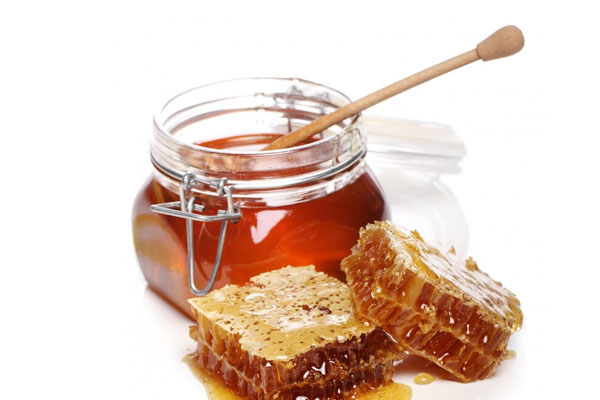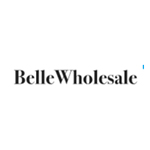Fitness
How Many Calories Does Skiing Burn?

How Many Calories Does Skiing Burn?
Do you know How Many Calories Does Skiing Burn? Skiing, a cherished winter sport, not only offers a thrilling adventure on the slopes but also serves as a fantastic workout amidst the picturesque snowy landscapes.
Have you ever wondered how many calories you actually burn when you’re out there gliding down the slopes? In this detailed guide, we’ll delve into the calorie-burning dynamics of various types of skiing and explore ways to optimize your training on skis.
Understanding Calorie Burn in Different Types of Skiing
1. Alpine Skiing:
Calorie Burn: Also known as downhill skiing, alpine skiing’s calorie burn varies based on factors like body weight, speed, and terrain. On average, a person weighing around 70 kg can burn between 300 and 600 calories per hour.
2. Cross-Country Skiing:
Calorie Burn: Renowned for its endurance and fitness requirements, cross-country skiing engages the entire body, resulting in a higher calorie burn. A 70 kg person can expect to burn between 500 and 900 calories per hour.
3. Snowboarding:
Calorie Burn: While technically distinct from skiing, snowboarding is another winter sport contributing to calorie burn. A 70 kg person can burn between 250 and 450 calories per hour, depending on intensity and terrain.
Factors Influencing Calorie Consumption in Skiing
1. Body Weight:
Impact on Calorie Burn: Your body weight significantly influences calorie burn; the heavier you are, the more calories you burn. This is due to the increased energy required to move a heavier body.
2. Intensity and Speed:
Calorie Burn Enhancement: Higher intensity and speed result in increased calorie burn. Alternating between high and low-intensity periods during skiing further enhances the overall calorie expenditure.
3. Terrain and Slope:
Calorie Burn Variation: Skiing on steep slopes and uneven terrain demands more energy, resulting in a higher calorie burn. Opting for challenging terrains with steep inclines can add an extra layer to your workout.
Optimizing Calorie Burning and Skiing Training
1. Mix Different Skiing Types:
Versatile Workout: Combine alpine skiing, cross-country skiing, and snowboarding for a well-rounded workout that engages different muscle groups and maximizes calorie burn.
2. Regular Exercise:
Increased Calorie Burn: Consistent skiing trips during the winter season contribute to improved endurance and fitness, enhancing your overall calorie burn during skiing sessions.
3. Include Strength Training:
Enhancing Muscles: Strengthen key muscles involved in skiing, such as legs, core, and upper body. This not only improves skiing performance but also boosts calorie burn.
4. Embrace Interval Training:
Effective Calorie Burn: Integrate interval training into your skiing routine, alternating between high and low-intensity periods. This approach effectively increases calorie burn during ski trips down the piste.
Beyond Calorie Burn: Additional Benefits of Skiing
1. Improved Balance and Coordination:
Positive Effects: Skiing demands good balance and coordination, contributing to enhanced overall body awareness and motor skills.
2. Strengthening Muscles and Joints:
Weight-Bearing Activity: As a weight-bearing activity, skiing strengthens muscles and joints, promoting bone strength and reducing the risk of injury.
3. Mental Health and Well-Being:
Nature’s Impact: Skiing outdoors amidst nature has a positive impact on mental health, reducing stress, and improving overall mood.
Enjoying Your Skiing Holiday as an Integral Training Experience
1. Calorie Burn Overview:
Varied Caloric Expenditure: The calorie burn during skiing varies based on factors like body weight, intensity, and terrain. Cross-country skiing generally burns more calories than downhill skiing and snowboarding.
2. Tailoring Your Skiing Experience:
Optimizing Calorie Burn: Optimize your skiing experience by combining different skiing types, exercising regularly, incorporating strength training, and integrating interval training.
3. Additional Health Benefits:
Beyond Calories: Skiing offers a plethora of health benefits, including improved balance, strengthened muscles and joints, and positive effects on mental well-being.
Effectiveness of Skiing as Exercise for Weight Loss
1. Caloric Burn Contribution:
Caloric Expenditure: Skiing can indeed be an effective exercise for weight loss, as it burns calories and engages various muscle groups.
2. Holistic Approach to Weight Loss:
Importance of Diet and Lifestyle: However, it’s crucial to remember that weight loss involves a holistic approach, including a healthy diet and an overall active lifestyle.
Embark on your skiing adventure with the knowledge that the enjoyment on the slopes comes hand in hand with a considerable calorie burn. From alpine skiing to cross-country escapades, each type of skiing offers a unique workout experience. So, revel in the snowy landscapes, optimize your calorie burn, and savor the numerous health benefits that skiing brings to both body and mind. Share your thoughts and views in the comments below regarding How Many Calories Does Skiing Burn.
Fitness
How to Prevent Hearing Damage?

How to Prevent Hearing Damage?
Do you know How to Prevent Hearing Damage?
In contemporary times, the issue of hearing damage has gained increasing relevance, affecting a considerable number of individuals. The prevalence of hearing damage, often attributed to loud music, environmental noises, and unsafe work practices, has raised concerns due to its irreversible nature.
This comprehensive guide aims to shed light on strategies to prevent hearing damage, emphasizing the importance of taking proactive measures from a young age and throughout life.
Understanding Maximum Sound Levels:
In response to the escalating awareness of hearing damage, regulations regarding maximum sound levels at events such as festivals and nightclubs have been instituted. Typically set at 103 decibels, there is an ongoing effort by interest groups to further reduce this threshold.
To safeguard against potential harm, it is advisable to equip oneself with quality earplugs when attending events with loud music. These earplugs, available in custom-made or ready-made variants, soften the sound without distorting its quality, allowing individuals to enjoy the experience while protecting their hearing.
Determining Tolerable Sound Levels:
While a general consensus holds that sound becomes less pleasant beyond approximately 100 decibels, the tolerance for loudness varies from person to person. It is crucial to recognize personal thresholds and take corrective actions when the noise becomes discomforting.
Understanding that each 10-decibel increase represents a doubling in perceived loudness emphasizes the significance of even small changes in decibel levels. Sounds exceeding 120 decibels are considered painful and potentially dangerous, comparable to the roar of an airplane engine in close proximity.
Preventive Measures for Hearing Damage:
Utilize Effective Earplugs:
A wide range of effective earplugs is available in the market, catering to specific needs such as loud music or noisy work environments. Options include earplugs designed to attenuate decibel levels while maintaining sound clarity and those offering complete sound isolation.
Customize Ear Protection:
Custom-made earplugs provide a tailored solution for individuals seeking personalized and comfortable hearing protection. These can be particularly beneficial for regular use in situations where noise exposure is consistent.
Exercise Caution with Fireworks and Loud Bangs:
Instances involving sudden loud noises, such as fireworks or unexpected bangs, pose a heightened risk of acute hearing damage. Vigilance and appropriate ear protection are crucial during such events.
Addressing Hearing Damage:
Consult a Professional:
Given the prevalence of temporary or permanent hearing damage, seeking professional advice is imperative. Consulting an audiologist is a proactive step to assess the extent of damage and explore potential solutions.
Audiologists and Hearing Health:
Choosing a reputable audiologist is paramount to addressing hearing concerns effectively. Reading reviews from previous clients offers valuable insights into the audiologist’s expertise and the quality of service provided.
Quality of Life Impact:
Recognizing the profound impact of hearing on overall quality of life reinforces the importance of prompt and adequate measures. Hearing problems can significantly diminish one’s daily experiences, making timely intervention essential.
Conclusion:
In conclusion, the prevention of hearing damage necessitates a proactive approach from individuals at every stage of life. Adhering to regulations on maximum sound levels, employing effective ear protection, and seeking professional advice when needed are pivotal steps. Understanding the personal tolerance for loudness and recognizing the potential risks associated with sudden loud noises are crucial aspects of hearing health.
Preserving one’s hearing is not only a matter of physical well-being but also contributes to an enhanced quality of life. As technology advances and awareness grows, incorporating these preventive measures becomes increasingly accessible, empowering individuals to safeguard their hearing and enjoy a lifetime of auditory well-being.
Fitness
What is the Best Honey?

What is the best honey?
What is the Best Honey? Honey, renowned worldwide for its diverse flavors and varieties, stands as one of the most cherished foods across the globe. It holds a special place in the culinary landscape, and its unique characteristics are shaped by the types of flowers from which bees extract nectar.
In this extensive exploration, we delve into the intricacies of honey, deciphering how to distinguish a good pot from a not-so-great one, and understanding the various factors that contribute to the quality of this golden elixir.
The Honey-Making Process:
Honey is a product of nature’s intricate dance between bees and flowers. Bees collect nectar from flowers and carry it into the hive, where enzymes are added through a natural process. This transformative journey results in the creation of honey, each variety offering a distinct taste profile.
Popular choices include sunflower honey, acacia honey, and thyme honey, each celebrated for its accessibility and delicious sweetness.
Beyond Honey: Beekeeper’s Bounty:
Beehives yield more than just honey; they produce a range of natural products. Beeswax, propolis, and royal jelly are among the treasures harvested by beekeepers. Beeswax finds use in candles and natural detergents, propolis boasts health applications, while royal jelly, crafted by the queen bee, holds a rare and special status.
Factors Influencing Honey Quality:
The quality of honey hinges on the environment in which bees thrive and the meticulous processing by beekeepers. Bees collecting nectar in polluted areas may compromise the purity of honey. Remote areas often yield higher-quality honey, making organic honey production challenging due to expansive required bee territories.
Beekeeper’s Role in Maintaining Quality:
Beekeepers play a crucial role in honey quality through their processing techniques. Cold swirling ensures that healthy substances remain intact, as excessive heat can strip honey of its beneficial properties.
Monitoring water content is vital, as variations can impact the honey’s shelf life. Storing honey in an airtight manner preserves its quality.
Testing and Certification:
Honey undergoes rigorous testing by processing companies to verify authenticity. Discrepancies in pollen sources or water content can signal potential issues. Authentic honey, composed primarily of natural sugars, encompasses a myriad of health benefits.
National and Unique Honey Varieties:
Certain countries boast honey varieties unique to their regions, often due to exclusive flower types or distinctive properties. Pitcairn Island honey, an extremely exclusive product, stands as a prime example. Its rarity is reflected in its availability in luxury department stores.
Manuka Honey:
Considered one of the most beneficial honey types, manuka honey hails from Australia and New Zealand, extracted from the manuka tree. Recognizable by its dark color and distinctive spicy aftertaste, manuka honey is revered for its potential health benefits. Due to its premium status, purchasing from reputable sellers ensures authenticity.
Personal Preferences in Honey:
Choosing the best honey boils down to personal taste preferences. While the entire market may showcase a variety of options, prioritizing real, additive-free honey is essential. Organic honey, adhering to stringent certification requirements, represents an even purer choice for those inclined towards a more natural product.
Supporting Beekeepers: A Journey into Beekeeping:
Beekeeping, often pursued by passionate individuals, faces challenges in the professional sphere. Exploring local beekeepers and their practices can offer a unique insight into the world of bees, allowing consumers to connect with the source of their honey.
Visiting a beekeeper provides the opportunity to purchase freshly made honey and savor the unique experience of tasting honeycomb straight from the hive.
Conclusion:
In the vast and diverse world of honey, navigating through options requires an understanding of the factors influencing quality and an appreciation for the nuances in flavor. Whether opting for classic choices or exploring rare varieties, the key lies in making informed decisions.
By recognizing the efforts of beekeepers, acknowledging the uniqueness of regional varieties, and understanding the hallmarks of authentic honey, consumers can embark on a delightful journey through the golden realms of this cherished culinary delight.
Fitness
Health Benefits of Herbal Tea

Health Benefits of Herbal Tea
Unveiling the Health Benefits of Herbal Tea : In contemporary times, the consumption of herbs and herbal teas has gained popularity as individuals seek natural remedies for daily ailments and overall health improvement.
However, it’s crucial to delve into the question: Is herbal tea genuinely beneficial for health? This inquiry necessitates a serious examination, as there exists a common misconception that all herbs, being natural, are inherently healthy and harmless.
Contrary to this belief, some herbs carry specific effects that require careful consideration.
The Rise of Herbal Tea Information:
Several years ago, a plethora of information flooded the internet regarding the varied effects of different herbs. Online stores provided detailed articles about the benefits of herbal teas, creating a wealth of knowledge for consumers.
However, due to stringent regulations, particularly from the European Union, engaging in such activities is now subject to rigorous requirements akin to those for medicines. While this regulation aims to ensure consumer safety, it has sparked debates, with some arguing that it restricts essential information about certain herbs.
Websites not directly selling herbs remain permitted to furnish information about the attributed effectiveness of specific herbs.
However, endorsing online stores where herbs can be purchased can lead to violations. Consequently, the available information online has become more restricted. Some medications incorporate plant components with proven effects approved by regulatory bodies, highlighting the importance of credibility in herbal consumption.
Seeking Guidance from Specialists:
To navigate the complexities of herbal remedies, consulting specialists is advisable. Pharmacists, natural doctors, or knowledgeable individuals in the field can provide personalized insights. While public information is limited, specialists can offer tailored advice based on their expertise. It’s essential to note that self-prescribing herbal remedies without adequate education may lead to unintended consequences.
Consideration of Side Effects:
Even though herbs are natural products, it is unwise to assume they are entirely risk-free. Some herbs may interact negatively with medications, while others may cause side effects in large quantities.
Prioritizing scientifically approved plants ensures a higher degree of safety. Well-known herbs like chamomile, lavender, and valerian dominate the list of approved plants due to rigorous testing and scrutiny.
Quality Matters in Herbal Tea:
When purchasing herbs, ensuring good quality is paramount. Quality not only affects the efficacy of the herb but also influences taste and the presence of additives. Inferior-quality tea may contain unwanted additives and possess a sour or unpleasant taste.
Additionally, attention should be given to how the herbs are cut. Proper cutting facilitates tea preparation, but excessively fine grinding may result in undesirable tea residues.
Exploring the World of Herbal Blends:
The market offers a myriad of herbal blends and mixtures, often with names implying specific effects such as promoting a good mood, inducing calmness, or ensuring a restful night’s sleep. These effects are usually attributed to approved plants present in the blend.
However, the subjective nature of individual responses means that effectiveness can vary. Some individuals swear by certain teas, while others report no noticeable effects. The realm of herbs and herbal teas remains extensive and nuanced, with ongoing discoveries and debates.
Guidance through Reviews:
Given the vast array of herbal teas available, reading reviews becomes an essential step before making a purchase. Reviews provide insights into the experiences of others, offering honest perspectives that guide potential buyers.
Verified reviews, particularly from consumers who have shared their genuine experiences, serve as valuable indicators for making informed choices in the realm of herbal teas.
Conclusion:
Herbal tea, with its rich history and diverse offerings, presents a compelling avenue for those seeking natural remedies and holistic well-being. The health benefits of herbal tea are multifaceted, with individual responses varying.
While regulations have curtailed the dissemination of information online, seeking advice from specialists, prioritizing scientifically approved plants, and considering the quality of herbs are crucial aspects of responsible herbal consumption.
In the evolving landscape of herbal remedies, staying informed and making decisions based on personal preferences, needs, and experiences ensures a positive and rewarding journey into the world of herbal teas. As you embark on this exploration, let reviews guide your choices, and remember that the quality of your herbal tea contributes significantly to the overall enjoyment and potential health benefits. Cheers to embracing the healthful and delightful world of herbal tea!
-

 Travel9 months ago
Travel9 months agoBest Spinning Rod for Bass 2024
-

 Technology9 months ago
Technology9 months agoBest Lure for Trout 2024
-

 Travel9 months ago
Travel9 months agoBest Hunting and Fishing Clothing 2024
-

 Travel9 months ago
Travel9 months agoBest Robot Vacuum Cleaners 2024
-

 Technology9 months ago
Technology9 months agoBest Floats for Night Fishing
-

 News6 months ago
News6 months agoValentine’s Deals
-

 Technology9 months ago
Technology9 months agoBest Twisters for Fishing 2024
-

 Travel9 months ago
Travel9 months agoBest Spinning Fishing Reels for Bass 2024




















